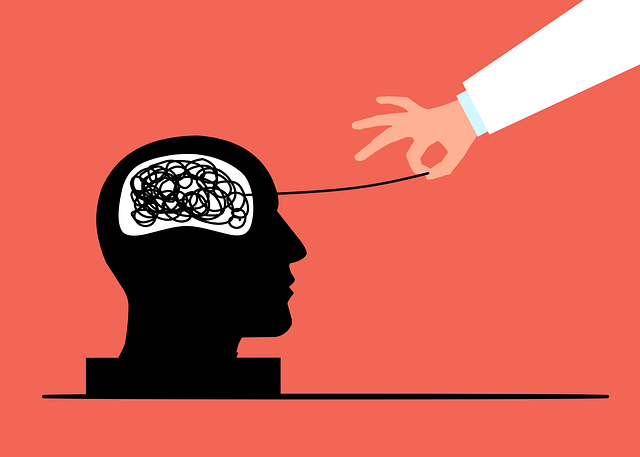
Category: Christian Marriage Therapist Gilbert Az
Christian Marriage Therapist Gilbert Az: A Comprehensive Exploration
Introduction
In the intricate tapestry of modern therapy practices, a unique and profound approach stands out—the Christian Marriage Therapist (CMT) model, with a specific focus on Arizona (AZ). This article delves into the world of CMT Gilbert AZ, exploring its origins, impact, and evolving role in addressing marital challenges from a spiritual perspective. As a growing trend, this therapy type offers hope and guidance to couples seeking to strengthen their bonds through faith-based practices. We will unravel the various facets of this therapeutic approach, its global reach, and its potential to transform lives.
Understanding Christian Marriage Therapist Gilbert Az
Definition and Core Principles
Christian Marriage Therapist (CMT) is a specialized form of counseling designed to assist couples in navigating relationship difficulties while integrating their Christian faith. It combines traditional marriage therapy techniques with biblical principles and spiritual guidance. CMT Gilbert AZ, as the name suggests, operates within the state of Arizona, providing services tailored to the unique needs of married couples in this region.
The core components of CMT include:
- Biblical Integration: Therapists use biblical teachings and stories as a framework to address marital issues, offering spiritual insights and direction.
- Prayer and Spiritual Practice: Encouraging clients to engage in prayer and other spiritual disciplines as tools for healing and growth.
- Confidentiality: Adhering to strict confidentiality standards while ensuring respect for religious beliefs.
- Individualized Approach: Tailoring therapy to each couple’s specific situation, cultural background, and faith tradition.
- Holistic Perspective: Addressing emotional, spiritual, and relational aspects of marriage for comprehensive healing.
Historical Context and Growth
The concept of integrating religion into mental health treatment has deep roots in history. In the early 20th century, religious institutions began to recognize the value of professional counseling, leading to the development of faith-based therapy models. Over time, Christian Marriage Therapists emerged as a specialized subset within the broader field of marriage and family therapy.
The growth of CMT can be attributed to several factors:
- Changing Social Landscape: Modern society’s evolving views on marriage and relationships have increased demand for alternative therapeutic approaches.
- Religious Diversity: With diverse religious backgrounds in the US, specialized therapists cater to various faith traditions, making therapy more accessible.
- Research Support: Studies have demonstrated the effectiveness of faith-based interventions in improving marital satisfaction and well-being.
- Referral Networks: Many churches and Christian organizations now refer couples to certified CMTs, fostering growth in the field.
Global Impact and Trends
The influence of Christian Marriage Therapist Gilbert AZ extends far beyond Arizona’s borders, with its impact felt across the globe. This therapy model has gained traction internationally due to several key trends:
- Cultural Adaptation: CMTs adapt their practices to suit different cultural contexts, ensuring that biblical teachings resonate with diverse populations.
- Digital Access: Online counseling platforms have made it possible for therapists to reach clients worldwide, breaking geographical barriers.
- Interfaith Collaboration: Global partnerships between Christian and other faith-based organizations facilitate the exchange of resources and expertise in marital therapy.
Regional Differences
The application of CMT varies across regions, reflecting local cultural norms and religious demographics:
| Region | Cultural/Religious Considerations | Popular Therapy Approaches |
|---|---|---|
| North America (including AZ) | Diverse Christian denominations; strong influence of Protestant and Catholic traditions | Emphasis on biblical counseling, premarital education, and spiritual growth integration |
| Europe | Diverse religious landscape, with a significant Roman Catholic and Eastern Orthodox presence | Incorporates elements of cognitive-behavioral therapy (CBT) alongside faith-based practices |
| Africa | Rich in traditional African religions and Christian denominations; unique challenges related to cultural barriers and gender dynamics | Community-based interventions and group therapy sessions are prevalent |
| Asia | Highly diverse, with a range of religious beliefs from Hinduism to Buddhism to various forms of Christianity | Tailored approaches focusing on family involvement and cultural sensitivity |
Economic Considerations
The economic landscape surrounding Christian Marriage Therapist Gilbert AZ is multifaceted, involving both market dynamics and the broader impact on societal well-being.
Market Analysis
- Demand and Growth: The demand for marital therapy services has been steadily rising, with CMT gaining popularity due to its unique value proposition.
- Competitive Landscape: Arizona’s mental health sector is competitive, with a mix of private practices, community clinics, and religious organizations offering counseling services.
- Pricing Strategies: Therapists employ various pricing models, including hourly rates, package deals, or insurance coverage options.
Societal Impact and Funding
- Community Support: Many CMTs receive support from local churches and community organizations, which can lead to affordable or subsidized therapy for couples in need.
- Government Initiatives: Some governments provide funding for marriage counseling as a way to promote healthy relationships and reduce social costs associated with divorce.
- Insurance Coverage: Growing acceptance of CMT by insurance providers expands accessibility, allowing more couples to seek professional help.
Technological Advancements
Technology plays a pivotal role in the modern practice of Christian Marriage Therapist Gilbert AZ, enhancing access, efficiency, and therapeutic outcomes.
Online Counseling Platforms
- Video Conferencing: Therapists utilize video conferencing tools to provide remote sessions, especially beneficial for couples in rural areas or with limited mobility.
- Secure Data Sharing: Cloud-based platforms enable the secure exchange of documents and progress notes between clients and therapists.
- Online Resources: Websites and mobile apps offer additional resources, including self-help articles, prayer guides, and interactive tools to support couples between sessions.
Artificial Intelligence (AI) Applications
- Chatbots for Initial Assessment: AI-powered chatbots assist in initial client assessments, providing preliminary guidance and directing individuals to appropriate therapists or resources.
- Personalized Therapy Recommendations: AI algorithms can analyze client data to suggest tailored therapeutic interventions and reading materials.
- Natural Language Processing (NLP): NLP techniques enable therapists to gain deeper insights into clients’ language patterns and emotional states during sessions.
Policy and Regulation
The regulatory landscape surrounding CMT is crucial for ensuring quality, ethical practices, and client protection.
Licensing and Certification
- Arizona Requirements: In AZ, marriage and family therapists must obtain a license from the Arizona Board of Behavioral Health. CMTs often hold additional certifications specific to religious counseling.
- National Organizations: National bodies like the American Association for Marriage and Family Therapy (AAMFT) provide standards and resources for certification and ethical practice.
- Religious Credentials: Some therapists seek specialized training in religious counseling from institutions affiliated with their denomination.
Ethical Guidelines
- Confidentiality: Strict confidentiality is maintained, respecting clients’ privacy and faith-based perspectives.
- Cultural Competence: Therapists are trained to work sensitively with diverse cultural and religious backgrounds.
- Religious Freedom: CMTs adhere to principles of religious freedom, allowing clients to express their faith beliefs openly.
Challenges and Criticisms
Despite its growing popularity, Christian Marriage Therapist Gilbert AZ faces challenges and criticisms that require thoughtful consideration and strategic responses.
Main Challenges:
- Accessibility: Ensuring accessibility for all couples, particularly those from low-income backgrounds or with limited technological resources.
- Interfaith Acceptance: Gaining acceptance across various religious denominations and addressing potential conflicts between therapy practices and faith traditions.
- Training and Certification: Developing comprehensive training programs to ensure the competence of CMTs while accommodating diverse theological perspectives.
- Stigma: Combating stigma associated with seeking marital counseling, especially within conservative religious communities.
Proposed Solutions:
- Community Outreach Programs: Partnering with community centers and churches to offer subsidized or free therapy services to underresourced couples.
- Interfaith Dialogue: Encouraging open conversations between therapists and clients from different faith backgrounds to foster mutual understanding.
- Comprehensive Training: Creating standardized training programs that include diverse theological perspectives, cultural sensitivity, and ethical guidelines.
- Public Awareness Campaigns: Raising awareness about the benefits of therapy for marriage through educational initiatives and media campaigns.
Case Studies: Successful Applications
Real-life examples illustrate the transformative power of Christian Marriage Therapist Gilbert AZ in various scenarios.
Case Study 1: Overcoming Communication Barriers
Sarah and Michael, a married couple in their early 30s, sought help for their relationship struggles. They had grown up in different religious backgrounds, creating communication challenges. Through CMT, they learned effective communication skills tailored to their faith perspectives. The therapist facilitated open dialogue, allowing them to understand each other’s spiritual beliefs better. Over several sessions, Sarah and Michael improved their connection, leading to a deeper sense of unity within their marriage.
Case Study 2: Navigating Infidelity
John and Emily, married for over a decade, faced a crisis when John admitted to an affair. They turned to CMT to heal the wounds caused by infidelity. The therapist helped them process their emotions, rebuild trust, and strengthen their bond through biblical guidance. By engaging in forgiveness exercises and setting new relationship boundaries, John and Emily experienced profound healing and renewed commitment.
Case Study 3: Pre-Marriage Counseling Success
Emma and David were engaged and eager to build a strong foundation for their future marriage. They participated in premarital counseling with a CMT, focusing on communication, conflict resolution, and spiritual goals. The sessions prepared them to navigate challenges, fostering open dialogue and a shared vision for their marriage. Within a year of their wedding, they credited the counseling session as a key factor in their happy and fulfilling union.
Future Prospects
The future of Christian Marriage Therapist Gilbert AZ looks promising, with several growth areas and emerging trends shaping its trajectory.
Potential Growth Areas:
- Teens and Young Adults: Increasing focus on premarital counseling and relationship education for younger couples to prevent marital issues later in life.
- Online Therapy Expansion: Further integration of technology to reach more clients worldwide and offer specialized services tailored to diverse cultural contexts.
- Specialized Populations: Development of CMT programs tailored to specific groups, such as military spouses or survivors of domestic violence.
Emerging Trends:
- Integrative Approaches: Combining CMT with other therapeutic modalities, such as mindfulness practices or art therapy, to enhance healing outcomes.
- Cultural Sensitivity Training: Advanced training in cultural competence to address the diverse needs of Arizona’s increasingly multicultural population.
- Research Collaboration: Continued collaboration between academic institutions and therapists to generate evidence-based practices and improve therapeutic outcomes.
Conclusion: Empowering Couples for Life
Christian Marriage Therapist Gilbert AZ represents a powerful approach to addressing marital challenges, blending spiritual guidance with professional counseling. As demonstrated by its global impact and successful case studies, this therapy model offers hope and healing to couples seeking to strengthen their bonds. By integrating faith-based practices with evidence-based techniques, CMTs empower individuals and families to navigate life’s complexities with resilience and purpose.
FAQ Section: Addressing Common Concerns
Q: Is Christian Marriage Therapy right for everyone?
A: While CMT can be highly beneficial, it may not suit every couple. Open-mindedness and a willingness to engage in spiritual practices are essential. Couples from diverse religious backgrounds can find common ground, but those with strong objections to any specific faith tradition may prefer alternative approaches.
Q: How do I choose the right Christian Marriage Therapist?
A: Look for certified therapists with experience in your specific needs. Ensure they align with your theological perspective and demonstrate cultural sensitivity. Referrals from trusted sources and online reviews can be valuable resources.
Q: Can CMT help with non-religious marital issues?
A: Absolutely! CMTs are trained to address a wide range of relationship challenges, including communication problems, conflict resolution, and rebuilding trust, regardless of religious beliefs.
Q: Is therapy expensive, and is insurance coverage available?
A: Costs vary, but many therapists offer flexible pricing. Insurance coverage for counseling services is expanding, so check with your provider. Many CMTs also provide subsidized rates or sliding scale fees based on income.
Q: How can technology improve my therapy experience?
A: Online platforms and apps allow convenient access to resources and sessions. Video conferencing enables remote support, while secure data sharing ensures privacy. These tools enhance communication and engagement between therapists and clients.











